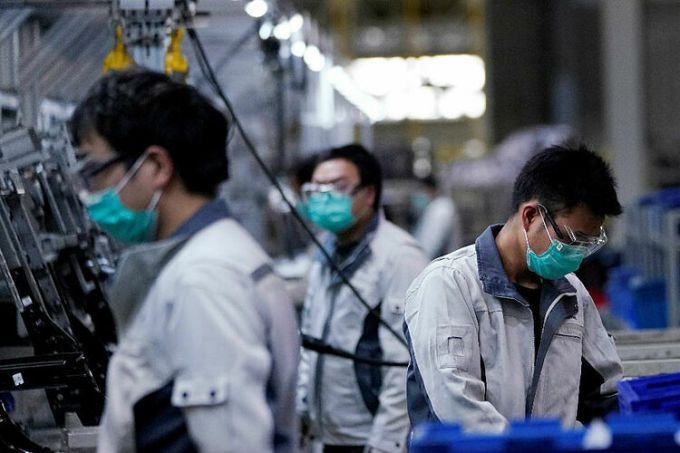
Covid-19 is a rare double shock to the global economy
China – the world’s factory – will have a long time to fully restore production as many factories remain closed and workers are quarantined.
This supply shock was initially considered only short-term, and could be easily reversed once the epidemic was controlled.
However, these forecasts are becoming too optimistic, as demand is also decreasing.
Workers at a factory in Shanghai (China).
The impact of these two shocks is still a topic of debate among economists.
“A typical recession usually involves falling demand relative to supply,” said former Fed official David Wilcox. “Under normal circumstances, economic policymakers know how to fill the gap.
This explains why the world economy is approaching its weakest growth year since the 2009 crisis. The authorities’ inflation targets are now becoming distant.
It is also the reason for the emergency interest rate cut by the US Federal Reserve (Fed) on March 3.
Central banks know that lowering interest rates cannot help factories reopen or workers return to their companies.
In addition, the nature of this economic shock may make monetary policy less effective.
After the Fed’s pioneering move, governments are now under even more pressure to act more.
For policymakers, supply is a more difficult problem to solve.
To do that, new fiscal policy is appropriate.
Last week, global stocks plummeted the most since the financial crisis.
Increased spending by governments may not be able to curb the spread of the virus.


